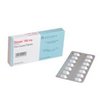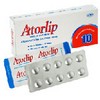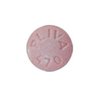 | Diovan (Teval) Active Ingredient: Valsartan Diovan is used for treating high blood pressure alone or with other medicines. Other names for this medication: Alpertan, Alsart, Alsartan, Arovan, Cardival, Co diovan, Co vals, Co-diovan, Co-diovane, Co-tareg, Codiovan, Combisartan, Cordinate, Corixil, Cotareg, Dalzad, Diovane, Disys, Dosara, Kalpress, Miten, Nisis, Nisisco, Provas, Ramartan, Rixil, Sarteg, Sarval, Simultan, Starval, Tareg, Teval, Valaplex, Valcap, Valitazin, Valpresan, Valpress, Valpression, Vals, Valsabela, Valsacor, Valsan, Valsaprex, Valsar, Valsartán, Valsartan-ni, Valsartanum, Valt, Valtan, Valturna, Valzaar, Valzek, Valzide, Varexan, Vartalan, Vasaten, Yosovaltan Show all |
| Package | Per Pill | Price | Savings | Bonus | Order |
|---|---|---|---|---|---|
| 80mg × 30 pills | $1.95 | $58.37 | + Levitra | ||
| 80mg × 60 pills | $1.58 | $94.59 | $22.15 | + Viagra | |
| 80mg × 90 pills | $1.45 | $130.8 | $44.3 | + Cialis |
| Package | Per Pill | Price | Savings | Bonus | Order |
|---|---|---|---|---|---|
| 40mg × 30 pills | $1.3 | $38.99 | + Levitra | ||
| 40mg × 60 pills | $1.07 | $64.35 | $13.63 | + Viagra | |
| 40mg × 90 pills | $1 | $89.71 | $27.25 | + Cialis |
INDICATIONS
Diovan is used for treating high blood pressure alone or with other medicines. It is used to treat heart failure. It is used in certain patients to decrease the risk of death after a heart attack. Diovan is an angiotensin II receptor blocker (ARB). It works by relaxing the blood vessels. This helps to lower blood pressure.
INSTRUCTIONS
Use Diovan as directed by your doctor.
- Take Diovan by mouth with or without food.
- Take Diovan on a regular schedule to get the most benefit from it. Taking Diovan at the same time each day will help you remember to take it.
- Continue to take Diovan even if you feel well. Do not miss any dose.
- If you miss a dose of Diovan, take it as soon as possible. If it is almost time for your next dose, skip the missed dose and go back to your regular dosing schedule. Do not take 2 doses at once.
Ask your health care provider any questions you may have about how to use Diovan.
STORAGE
Store Diovan at room temperature, between 59 and 86 degrees F (15 and 30 degrees C). Store away from heat, moisture, and light. Do not store in the bathroom. Keep Diovan out of the reach of children and away from pets.
MORE INFO:
Active Ingredient: Valsartan.
Do NOT use Diovan if:
- you are allergic to any ingredient in Diovan
- you are pregnant
- the patient is a child with severe kidney problems.
Contact your doctor or health care provider right away if any of these apply to you.
Some medical conditions may interact with Diovan. Tell your doctor or pharmacist if you have any medical conditions, especially if any of the following apply to you:
- if you are pregnant, planning to become pregnant, or are breast-feeding
- if you are taking any prescription or nonprescription medicine, herbal preparation, or dietary supplement
- if you have allergies to medicines, foods, or other substances
- if you are able to become pregnant
- if you have a history of angioedema (eg, swelling of the hands, face, lips, eyes, throat, or tongue; difficulty swallowing or breathing; hoarseness), including angioedema caused by treatment with an angiotensin-converting enzyme (ACE) inhibitor (eg, lisinopril)
- if you have a history of heart problems (eg, heart failure), blood vessel problems, blood flow problems, liver or kidney problems, gallbladder problems, or diabetes
- if you have a history of stroke or recent heart attack
- if you are dehydrated or have low blood volume
- if you have electrolyte problems (eg, high blood potassium levels, low blood sodium levels) or are on a low-salt (sodium) diet
- if you are on dialysis or are scheduled to have major surgery
- if you take another medicine for blood pressure or heart problems.
Some medicines may interact with Diovan. Tell your health care provider if you are taking any other medicines, especially any of the following:
- Diuretics (eg, furosemide, hydrochlorothiazide) because the risk of low blood pressure may be increased
- Potassium-sparing diuretics (eg, spironolactone, triamterene) or potassium supplements because the risk of high blood potassium levels may be increased
- Nonsteroidal anti-inflammatory drugs (NSAIDs) (eg, celecoxib, ibuprofen, indomethacin) because they may decrease Diovan's effectiveness
- Lithium because the risk of its side effects may be increased by Diovan.
This may not be a complete list of all interactions that may occur. Ask your health care provider if Diovan may interact with other medicines that you take. Check with your health care provider before you start, stop, or change the dose of any medicine.
Important safety information:
- Diovan may cause drowsiness, dizziness, or blurred vision. These effects may be worse if you take it with alcohol or certain medicines. Use Diovan with caution. Do not drive or perform other possible unsafe tasks until you know how you react to it.
- Diovan may cause dizziness, lightheadedness, or fainting; alcohol, hot weather, exercise, or fever may increase these effects. To prevent them, sit up or stand slowly, especially in the morning. Sit or lie down at the first sign of any of these effects.
- Diovan may cause a serious side effect called angioedema. Contact your doctor at once if you develop swelling of the hands, face, lips, eyes, throat, or tongue; difficulty swallowing or breathing; or hoarseness.
- Diovan may not work as well in black patients. Discuss any questions or concerns with your doctor.
- Dehydration, excessive sweating, vomiting, or diarrhea may increase the risk of low blood pressure. Contact your health care provider at once if any of these occur.
- Check with your doctor before you use a salt substitute or a product that has potassium in it.
- Tell your doctor or dentist that you take Diovan before you receive any medical or dental care, emergency care, or surgery.
- Patients who take medicine for high blood pressure often feel tired or run down for a few weeks after starting treatment. Be sure to take your medicine even if you may not feel "normal." Tell your doctor if you develop any new symptoms.
- If you have high blood pressure, do not use nonprescription products that contain stimulants. These products may include diet pills or cold medicines. Contact your doctor if you have any questions or concerns.
- Lab tests, including blood pressure, blood electrolyte levels, and heart, kidney, or liver function, may be performed while you use Diovan. These tests may be used to monitor your condition or check for side effects. Be sure to keep all doctor and lab appointments.
- Diovan should not be used in children younger 6 years; safety and effectiveness in these children have not been confirmed.
- Pregnancy and breast-feeding: Diovan may cause birth defects or fetal death if you take it while you are pregnant. If you think you may be pregnant, contact your doctor right away. It is not known if Diovan is found in breast milk. If you are or will be breast-feeding while you use Diovan, check with your doctor. Discuss any possible risks to your baby.
All medicines may cause side effects, but many people have no, or minor, side effects.
Check with your doctor if any of these most common side effects persist or become bothersome:
Diarrhea; dizziness; headache; joint or back pain; mild flu-like symptoms; stomach pain; tiredness.
Seek medical attention right away if any of these severe side effects occur:
Severe allergic reactions (rash; hives; itching; difficulty breathing; tightness in the chest; swelling of the mouth, face, lips, or tongue); blurred vision; change in the amount of urine produced; chest pain; dark urine; difficulty swallowing; fast, slow, or irregular heartbeat; fainting; muscle pain or cramps; severe or persistent stomach pain (with or without nausea or vomiting); symptoms of low blood pressure (eg, fainting, lightheadedness, severe dizziness); unusual bruising or bleeding; yellowing of the eyes or skin.
This is not a complete list of all side effects that may occur. If you have questions about side effects, contact your health care provider.
 TorsemideTorsemide is used for treatment of edema (swelling) associated with heart, kidney, or liver failure, or with conditions in which there is excess body water. It is also used alone or with other medicines to treat high blood pressure.as low as $0.38
TorsemideTorsemide is used for treatment of edema (swelling) associated with heart, kidney, or liver failure, or with conditions in which there is excess body water. It is also used alone or with other medicines to treat high blood pressure.as low as $0.38 PrednisolonePrednisolone is used for treating allergies, arthritis, breathing problems (eg, asthma), certain blood disorders, collagen diseases (eg, lupus), certain eye diseases (eg, keratitis), cancer (eg, leukemia), endocrine problems (eg, adrenocortical insufficiency), intestinal problems (eg, ulcerative colitis), swelling due to certain conditions, or skin conditions (eg, psoriasis).as low as $0.36
PrednisolonePrednisolone is used for treating allergies, arthritis, breathing problems (eg, asthma), certain blood disorders, collagen diseases (eg, lupus), certain eye diseases (eg, keratitis), cancer (eg, leukemia), endocrine problems (eg, adrenocortical insufficiency), intestinal problems (eg, ulcerative colitis), swelling due to certain conditions, or skin conditions (eg, psoriasis).as low as $0.36 Atorlip-5Atorlip-5 is used to treat high cholesterol.as low as $0.5
Atorlip-5Atorlip-5 is used to treat high cholesterol.as low as $0.5 Atorlip-10Atorlip-10 is used to treat high cholesterol.as low as $0.83
Atorlip-10Atorlip-10 is used to treat high cholesterol.as low as $0.83 VasotecVasotec is used for treating high blood pressure, heart failure, and other heart problems.as low as $0.56
VasotecVasotec is used for treating high blood pressure, heart failure, and other heart problems.as low as $0.56 PropranololPropranolol is used for treating certain types of irregular heartbeat.as low as $0.3
PropranololPropranolol is used for treating certain types of irregular heartbeat.as low as $0.3